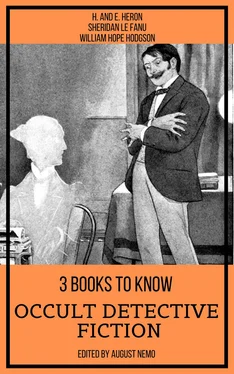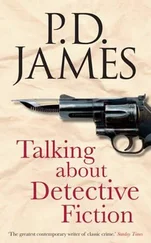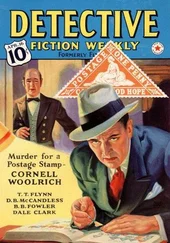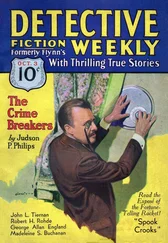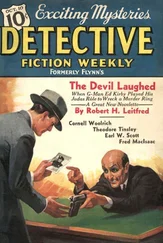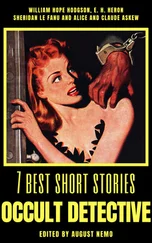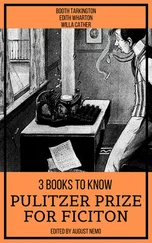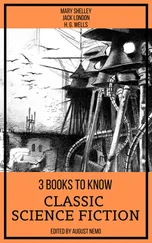“It used to spring on the table, on the back of the chair, on the chimney-piece, and slowly swing itself from side to side, looking at me all the time. There is in its motion an indefinable power to dissipate thought, and to contract one’s attention to that monotony, till the ideas shrink, as it were, to a point, and at last to nothing — and unless I had started up, and shook off the catalepsy I have felt as if my mind were to a point of losing itself. There are no other ways,” he sighed heavily; “thus, for instance, while I pray with my eyes closed, it comes closer and closer and closer, and I see it. I know it is not to be accounted for physically, but I do actually see it, though my lids are closed, and so it rocks my mind, as it were, and overpowers me, and I am obliged to rise from my knees. If you had ever yourself known this, you would be acquainted with desperation.”
The Third Stage
––––––––
“I see, Dr. Hesselius, that you don’t lose one word of my statement. I need not ask you to listen specially to what I am now going to tell you. They talk of the optic nerves, and of spectral illusions, as if the organ of sight was the only point assailable by the influences that have fastened upon me — I know better. For two years in my direful case that limitation prevailed. But as food is taken in softly at the lips, and then brought under the teeth, as the tip of the little finger caught in a mill crank will draw in the hand, and the arm, and the whole body, so the miserable mortal who has been once caught firmly by the end of the finest fibre of his nerve, is drawn in and in, by the enormous machinery of hell, until he is as I am. Yes, Doctor, as I am, for a while I talk to you, and implore relief, I feel that my prayer is for the impossible, and my pleading with the inexorable.”
I endeavoured to calm his visibly increasing agitation, and told him that he must not despair.
While we talked the night had overtaken us. The filmy moonlight was wide over the scene which the window commanded, and I said:
“Perhaps you would prefer having candles. This light, you know, is odd. I should wish you, as much as possible, under your usual conditions while I make my diagnosis, shall I call it — otherwise I don’t care.”
“All lights are the same to me,” he said; “except when I read or write, I care not if night were perpetual. I am going to tell you what happened about a year ago. The thing began to speak to me.”
“Speak! How do you mean — speak as a man does, do you mean?”
“Yes; speak in words and consecutive sentences, with perfect coherence and articulation; but there is a peculiarity. It is not like the tone of a human voice. It is not by my ears it reaches me — it comes like a singing through my head.
“This faculty, the power of speaking to me, will be my undoing. It won’t let me pray, it interrupts me with dreadful blasphemies. I dare not go on, I could not. Oh! Doctor, can the skill, and thought, and prayers of man avail me nothing!”
“You must promise me, my dear sir, not to trouble yourself with unnecessarily exciting thoughts; confine yourself strictly to the narrative of facts; and recollect, above all, that even if the thing that infests you be, as you seem to suppose a reality with an actual independent life and will, yet it can have no power to hurt you, unless it be given from above: its access to your senses depends mainly upon your physical condition — this is, under God, your comfort and reliance: we are all alike environed. It is only that in your case, the ‘paries,’ the veil of the flesh, the screen, is a little out of repair, and sights and sounds are transmitted. We must enter on a new course, sir — -be encouraged. I’ll give to-night to the careful consideration of the whole case.”
“You are very good, sir; you think it worth trying, you don’t give me quite up; but, sir, you don’t know, it is gaining such an influence over me: it orders me about, it is such a tyrant, and I’m growing so helpless. May God deliver me!”
“It orders you about — of course you mean by speech?”
“Yes, yes; it is always urging me to crimes, to injure others, or myself. You see, Doctor, the situation is urgent, it is indeed. When I was in Shropshire, a few weeks ago” (Mr. Jennings was speaking rapidly and trembling now, holding my arm with one hand, and looking in my face), “I went out one day with a party of friends for a walk: my persecutor, I tell you, was with me at the time. I lagged behind the rest: the country near the Dee, you know, is beautiful. Our path happened to lie near a coal mine, and at the verge of the wood is a perpendicular shaft, they say, a hundred and fifty feet deep. My niece had remained behind with me — she knows, of course nothing of the nature of my sufferings. She knew, however, that I had been ill, and was low, and she remained to prevent my being quite alone. As we loitered slowly on together, the brute that accompanied me was urging me to throw myself down the shaft. I tell you now — oh, sir, think of it! — the one consideration that saved me from that hideous death was the fear lest the shock of witnessing the occurrence should be too much for the poor girl. I asked her to go on and walk with her friends, saying that I could go no further. She made excuses, and the more I urged her the firmer she became. She looked doubtful and frightened. I suppose there was something in my looks or manner that alarmed her; but she would not go, and that literally saved me. You had no idea, sir, that a living man could be made so abject a slave of Satan,” he said, with a ghastly groan and a shudder.
There was a pause here, and I said, “You were preserved nevertheless. It was the act of God. You are in His hands and in the power of no other being: be therefore confident for the future.”
Home
––––––––
I made him have candles lighted, and saw the room looking cheery and inhabited before I left him. I told him that he must regard his illness strictly as one dependent on physical, though subtle physical causes. I told him that he had evidence of God’s care and love in the deliverance which he had just described, and that I had perceived with pain that he seemed to regard its peculiar features as indicating that he had been delivered over to spiritual reprobation. Than such a conclusion nothing could be, I insisted, less warranted; and not only so, but more contrary to facts, as disclosed in his mysterious deliverance from that murderous influence during his Shropshire excursion. First, his niece had been retained by his side without his intending to keep her near him; and, secondly, there had been infused into his mind an irresistible repugnance to execute the dreadful suggestion in her presence.
As I reasoned this point with him, Mr. Jennings wept. He seemed comforted. One promise I exacted, which was that should the monkey at any time return, I should be sent for immediately; and, repeating my assurance that I would give neither time nor thought to any other subject until I had thoroughly investigated his case, and that to-morrow he should hear the result, I took my leave.
Before getting into the carriage I told the servant that his master was far from well, and that he should make a point of frequently looking into his room.
My own arrangements I made with a view to being quite secure from interruption.
I merely called at my lodgings, and with a traveling-desk and carpet-bag, set off in a hackney carriage for an inn about two miles out of town, called “The Horns,” a very quiet and comfortable house, with good thick walls. And there I resolved, without the possibility of intrusion or distraction, to devote some hours of the night, in my comfortable sitting-room, to Mr. Jennings’ case, and so much of the morning as it might require.
Читать дальше
